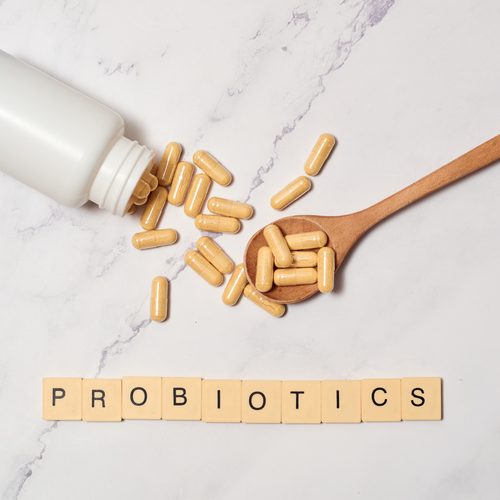Do you know that unpleasant feeling of a sour taste rising in your throat or a bloated stomach? You have acid reflux and your stomach won't give you any respite.
The benefits of using plants are numerous in scientific literature. With each change of season, DIJO recommends undertaking a Focus Acidité treatment . This small algae is known for its richness in micronutrients and its remineralizing properties .
This product should be taken as part of a healthy lifestyle and should not be used as a substitute for a varied and balanced diet. It is recommended to follow the indicated daily dose and keep it out of the reach of young children.
What is acid-base balance?
Stomach acid can be a real source of discomfort for many people, leading to heartburn and heartburn . Fortunately, there are natural ways to relieve this stomach discomfort, including through your diet.
Indeed, there are alkalizing foods, responsible for regulating the body's acid-base balance. This metabolic balance maintains an adequate level of acidity in the body, thus preserving your general well-being. A disruption of this balance can be the source of many inconveniences and lead to daily discomfort. Pollution, stress , but also the consumption of acid-forming foods are sources of imbalances. However, modern diets often produce acids: processed products, refined sugar, salt, meat, cheese, sodas... all these foods contribute to the disruption of the acid-base balance.
We then present to you the foods which have an alkalizing power, responsible for maintaining the acid-base balance!
Our tips for maintaining a good acid-base balance
1 - Increase your consumption of alkalizing foods
Just as the body temperature is optimal at 37°C, there is also an optimal, neutral pH. These are essential parameters that allow the body to function properly. This acid-base balance is the balance between the body's acidity and alkalinity levels.
Acid-forming foods such as salt, processed meats, fish, processed foods, refined grains, dairy products, sodas, and alcohol are known to promote this acid production in the body!
A basifying or alkalizing food is one whose Pra l ( Potential Renal Acid Load) index is negative. These include fruits (banana, pineapple, blackcurrant), vegetables (spinach, fennel, carrot), oily fruits, garlic, onion, as well as spices, but also green tea and herbal teas.
Not to be confused: the “acid” taste of a food and its “acidifying” power. For example, lemon has a very acidic taste but is a food with rather alkalizing power!
2 - Favor foods rich in potassium
A diet too rich in salt and meat can cause potassium deficiencies. However, potassium is an essential mineral for the functioning of the "buffer systems" that regulate acid-base balance. We rely on these foods: lentils (810 mg per 100g), dried dates (790 mg per 100g), prunes (732 mg per 100g), almonds (705 mg per 100g), spinach (662 mg per 100g), avocado (650 mg per 100g), chestnuts (600 mg per 100g), mushrooms (520 mg per 100g), walnuts (450 mg per 100g), apricots (440 mg per 100g).
3 - Eat foods rich in fiber
Fiber-rich foods, such as fruits, vegetables, and grains, help fight acid reflux and aid digestion . How does it work? Soluble fiber has the ability to absorb intestinal fluids, including water and gastric fluid, as food passes through the intestines. This prevents the movement of stomach acids. Therefore, it's recommended to choose foods rich in soluble fiber, such as oatmeal, barley, and beans.
4 - Consume skimmed dairy products
Contrary to popular belief, not all dairy products should be banned when it comes to heartburn !
Yogurts and hard cheeses are generally well tolerated and do not complicate digestion . Drinking a glass of milk, preferably skimmed, can relieve heartburn because the pH of milk is much less acidic than the pH of the stomach.
However, it is best to avoid moldy cheeses such as Camembert, Roquefort, and goat's cheese, as well as semi-skimmed milk. Because they take longer to digest, they promote acid reflux and slow gastric emptying.













